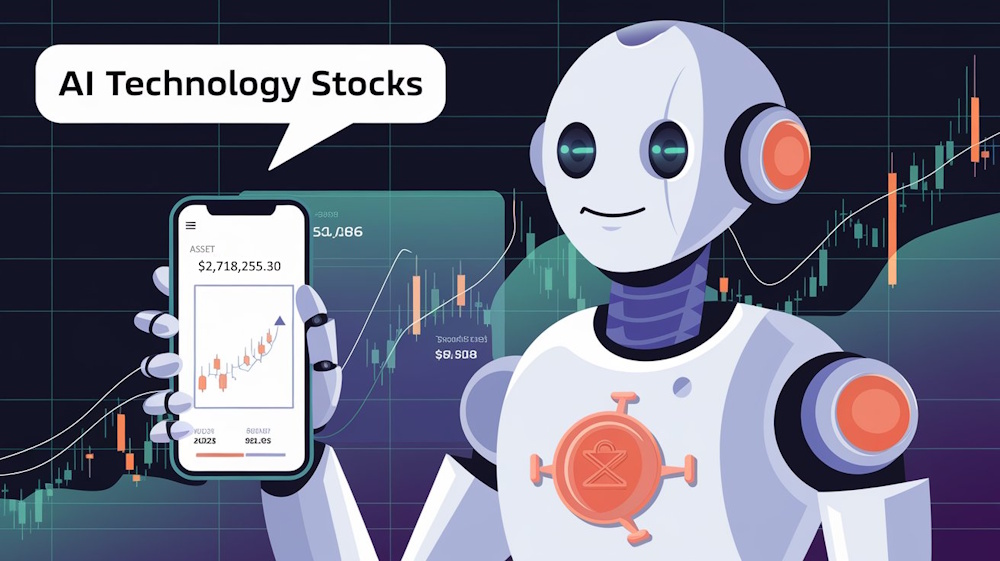A Complete Insight on What to Invest in A.I. to Catch the Wave
Artificial intelligence is reshaping industries at an unprecedented pace, presenting lucrative opportunities for investors who can identify where value is being created. The key to capitalizing on these opportunities lies in targeting sectors that directly benefit from AI advancements and understanding the dynamics that drive demand.
The Infrastructure Backbone: Compute and Storage
AI’s voracious appetite for computational power makes hardware a cornerstone of the industry. Companies specializing in graphics processing units (GPUs), application-specific integrated circuits (ASICs), and tensor processing units (TPUs) are at the heart of AI infrastructure. Market leaders such as NVIDIA dominate this space, but emerging players in niche computational hardware are gaining traction, particularly in areas like neuromorphic computing, which mimics brain-like processes.
On the storage front, AI systems require vast amounts of data, which must be securely and efficiently stored. This demand has spurred innovation in cloud storage and advanced memory solutions. Look to providers integrating AI tools for predictive maintenance, security, and performance optimization in their data storage offerings. These integrations represent a critical competitive advantage, making such companies attractive investment targets.
Software Dominance: The Age of Platforms
Software powers AI applications, from consumer-facing tools like chatbots to enterprise solutions in supply chain optimization. Companies developing foundational models—like OpenAI, with its GPT series—hold immense potential. However, investing directly in proprietary platforms can be tricky, especially for private firms.
Instead, opportunities abound in enterprises offering Software-as-a-Service (SaaS) platforms tailored to AI needs. Examples include firms delivering AI-powered customer relationship management (CRM), marketing automation, or cybersecurity solutions. These platforms address pressing challenges across industries, ensuring stable revenue streams and sustained growth.
AI’s Data Dependency: Opportunities in Data
Without high-quality data, AI models fail to deliver meaningful insights. The companies that collect, curate, and label data for training machine learning models are critical enablers of AI success. Firms such as Scale AI or Appen provide labeled datasets that feed into various AI systems, ensuring their functionality and accuracy.
Meanwhile, data security and privacy concerns have fueled the rise of companies specializing in synthetic data and data anonymization. These technologies create datasets that mimic real-world scenarios without compromising individual privacy. Investing in this segment aligns with rising regulatory demands and growing corporate concerns over data ethics.
The Vertical AI Revolution: Specialized Applications
AI’s transformative potential is particularly evident in vertical applications, where specialized models are tailored to specific industries. In healthcare, AI-driven diagnostics, personalized medicine, and drug discovery are revolutionizing patient care. Biotech companies leveraging AI for computational biology and genomics—like DeepMind’s AlphaFold or smaller precision-medicine startups—offer high-growth potential.
In agriculture, AI is driving precision farming with technologies like yield forecasting and pest management. Similarly, the energy sector is leveraging AI for grid optimization, predictive maintenance of infrastructure, and renewable energy forecasting. Investing in these domain-specific applications allows exposure to high-impact industries where AI adoption can generate significant returns.
AI’s Economic Ecosystem: Workforce Transformation
AI is reshaping the workforce, leading to increased demand for reskilling and upskilling programs. This creates opportunities in education technology (EdTech) companies that integrate AI for personalized learning and workforce training. Startups and established firms providing AI-powered educational content, virtual tutors, or performance tracking systems are becoming indispensable in bridging the skills gap.
Moreover, recruitment platforms using AI for talent acquisition and workforce analytics represent a growing niche. These companies help organizations identify, hire, and retain talent more effectively, catering to the evolving needs of an AI-driven economy.
Regulatory Challenges and Ethical AI
As AI adoption accelerates, concerns over fairness, bias, and accountability are becoming prominent. Governments and regulatory bodies are crafting policies to manage these challenges, creating demand for solutions that ensure compliance with new rules. Companies offering AI governance tools—such as bias detection algorithms or explainability frameworks—are poised for growth.
Additionally, ethical AI initiatives, though nascent, are gaining momentum. Startups focused on responsible AI development, environmental sustainability in AI workflows, and AI systems that prioritize societal benefits over profits are attracting interest from impact investors.
Quantum Computing: The Next Frontier
While still in its infancy, quantum computing is closely tied to AI’s evolution. Quantum processors promise to solve complex optimization problems far beyond the capabilities of classical computers, unlocking new levels of AI efficiency. Investments in quantum computing firms are inherently risky due to the technology’s early-stage development, but the long-term potential is extraordinary.
Beyond Tech: Indirect Beneficiaries of AI
Not all AI opportunities lie in technology itself. Companies in logistics, retail, and manufacturing are integrating AI to optimize operations, creating second-order benefits. For example, logistics giants employing AI-driven route optimization and inventory management systems improve delivery efficiency, reducing costs and boosting margins. Identifying such indirect beneficiaries of AI adoption allows for diversified exposure to its growth.
Additionally, real estate and urban planning firms are leveraging AI to model city growth, optimize building energy usage, and plan sustainable developments. Investing in businesses at the intersection of AI and traditional industries provides a balanced risk-reward profile for those wary of the volatility of pure-tech plays.
Investing in AI requires a blend of foresight and adaptability. From infrastructure and software platforms to vertical applications and ethical innovations, the possibilities are as vast as they are diverse. Staying informed about technological advancements and market trends will ensure you remain ahead in this rapidly evolving landscape.

